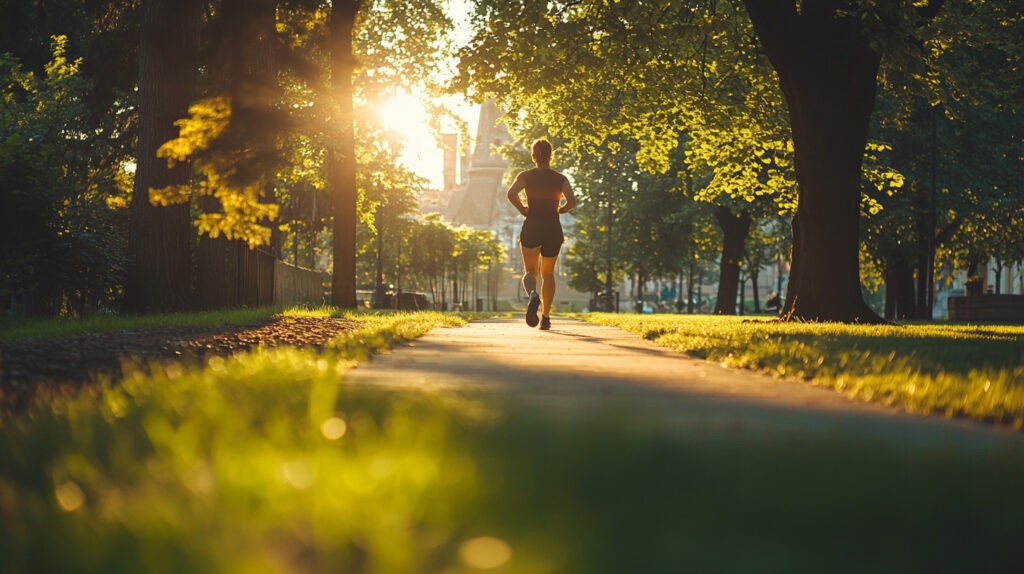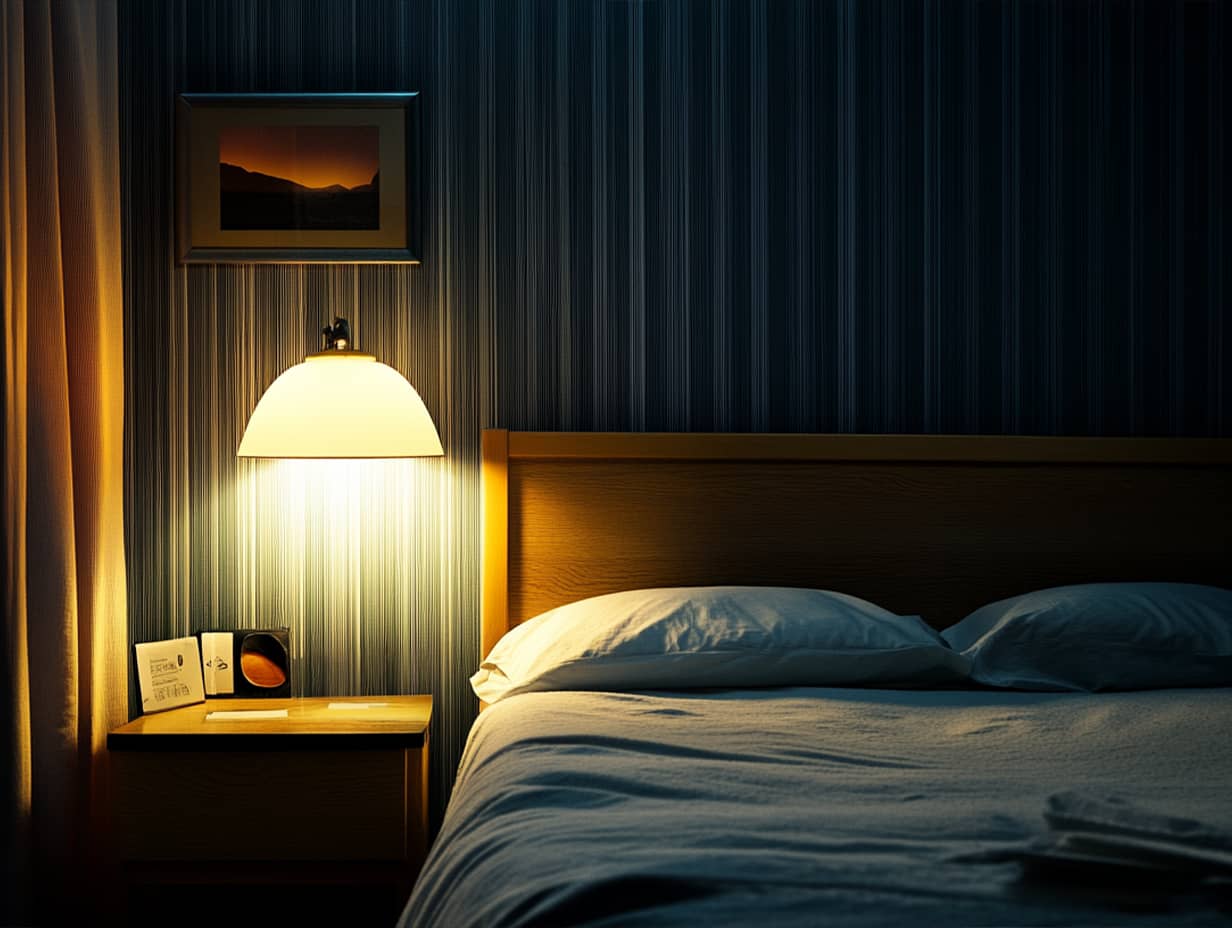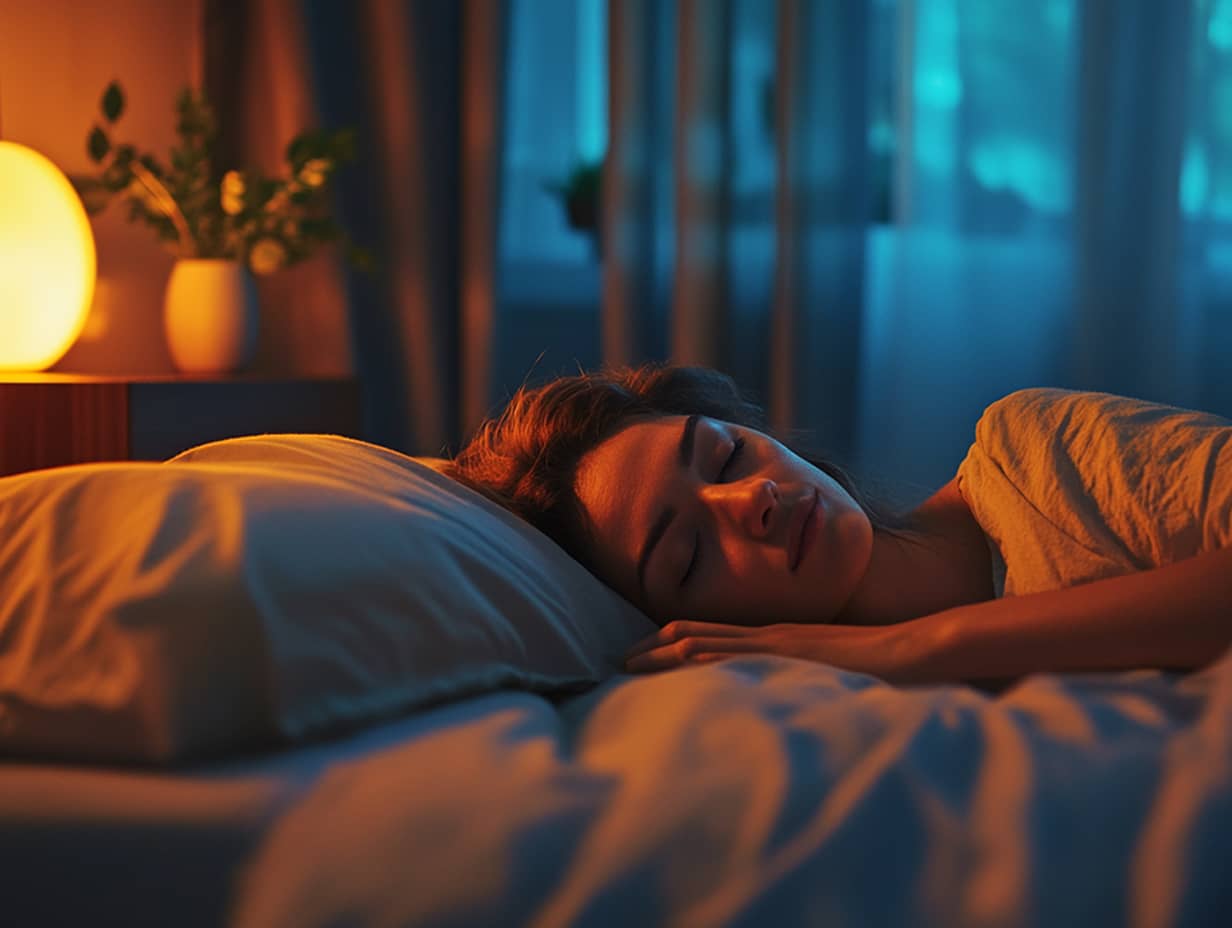The Science of Sleep: Understanding Your Circadian Rhythms
Sleep Health
Oct 14, 2024
Share this blog:

What Are Circadian Rhythms?
Ever wonder why you feel sleepy at night and alert during the day? The answer lies in your circadian rhythms – your body's internal clock that regulates various biological processes over a 24-hour cycle.
Circadian rhythms are like a conductor orchestrating your body's daily functions:
Sleep-wake cycle
Hormone production
Body temperature fluctuations
Metabolism
These rhythms are primarily controlled by a group of neurons in your brain called the suprachiasmatic nucleus (SCN). Think of the SCN as your body's master circadian pacemaker.
Key points about circadian rhythms:
They're synchronized by external cues (zeitgebers), primarily light and mealtimes
They can be disrupted by factors like jet lag or shift work
They affect nearly every system in your body:
When you feel most alert
Your peak physical performance times
The best times for cognitive tasks
Did you know? The word "circadian" comes from the Latin "circa diem," meaning "about a day."
Your circadian rhythms aren't just about sleep!
Understanding your personal circadian rhythms can help you optimize your daily schedule for peak performance and well-being. While circadian rhythms are innate, they can be influenced by lifestyle factors.

Circadian Rhythms and Sleep Quality
Your circadian rhythms play a crucial role in determining readiness and sleep quality. Understanding this relationship can help you optimize your sleep patterns and wake up feeling more refreshed and energized.
The Sleep-Wake Cycle
Our circadian rhythms regulate the sleep-wake cycle, also known as the circadian sleep rhythm. This internal clock tells our body when it's time to sleep and when it's time to wake up. Dr. Matthew Walker, a sleep scientist at UC Berkeley, explains:
"The circadian rhythm is like a 24-hour internal clock that runs in the background of your brain and cycles between sleepiness and alertness at regular intervals."
When your circadian rhythms are in sync, you'll naturally feel sleepy in the evening and alert in the morning. However, disruptions to this rhythm can lead to sleep problems and daytime fatigue.
Impact on Sleep Stages
Circadian rhythms don't just determine when we sleep; they also influence the structure of our sleep. Our sleep consists of different stages, including light sleep, deep sleep, and REM (Rapid Eye Movement) sleep. Each stage serves a unique purpose in restoring our body and mind.
Light Sleep: Helps transition between wakefulness and deeper sleep stages.
Deep Sleep: Crucial for physical restoration and memory consolidation.
REM Sleep: Important for cognitive functions, emotional processing, and dreams.
Research shows that circadian rhythms influence the timing and duration of these sleep stages. For example, REM sleep tends to be more prevalent in the latter part of our sleep period, aligning with our natural circadian rhythm.
Sleep Quality and Circadian Alignment
When your sleep schedule aligns with your circadian rhythms, you're more likely to experience performance enhancing sleep. This alignment allows your body to:
Fall asleep more easily
Sustain sleep throughout the night
Get the optimal balance of Deep, Light, and REM sleep each night
Wake up naturally without an alarm
Feel more alert and energized during the day
Dr. Satchin Panda, a circadian rhythms expert at the Salk Institute, notes:
"When we align our sleep-wake cycle with our internal circadian clock, we optimize our sleep efficiency and overall health."
Circadian Misalignment and Sleep Disorders
Disruptions to your circadian rhythms can lead to various sleep disorders and poor sleep quality. Common issues include:
Insomnia: Difficulty falling asleep or sustaining sleep
Delayed Sleep Phase Syndrome: A consistent pattern of late bedtimes and late wake times
Jet Lag: Temporary sleep disruption due to traveling across time zones
Shift Work Sleep Disorder: Sleep problems related to working non-traditional hours
These disorders often result from a mismatch between your internal clock and external schedules or environments.
Improving Sleep Quality Through Circadian Rhythm Management
To enhance your sleep quality, try these strategies to align your habits with your circadian rhythms:
Maintain a consistent sleep schedule, even on weekends
Create a relaxing bedtime routine to signal to your body that it's time to sleep
Avoid bright lights and screens in the evening, as they can suppress melatonin production
Get exposure to natural light during the day to reinforce your circadian rhythms
By understanding and working with your circadian rhythms, you can significantly improve your sleep quality and overall well-being. Remember, good sleep is not just about quantity; it's about aligning with your body's natural rhythms to achieve restorative, high-quality rest.

The Impact of Light, Activity, and Meals on Circadian Rhythms
Our circadian rhythms are influenced by various external factors, known as zeitgebers. Among these, light, physical activity, and meal timing play crucial roles in regulating our internal clock. By understanding and leveraging the impact of light, activity, and meals on our circadian rhythms, we can create daily routines that support our natural biological cycles. This holistic approach can lead to improved sleep quality, better daytime alertness, and overall enhanced well-being.
Light: The Primary Circadian Regulator
Light is the most powerful zeitgeber, directly influencing our circadian rhythms through the suprachiasmatic nucleus (SCN) in our brain. Light is the primary synchronizer of our biological clock. It suppresses melatonin production and shifts our circadian phase.
Light plays a crucial role in regulating our circadian rhythms. Morning light exposure is particularly important as it helps reset our circadian clock and promotes alertness, setting us up for a productive day. Conversely, evening light, especially the blue light emitted by electronic devices, can interfere with our natural sleep patterns by delaying sleep onset. This is why experts often recommend limiting screen time before bed. It's also worth noting that seasonal changes in daylight can have a significant impact on our circadian rhythms and mood. Many people experience shifts in their sleep patterns and even mood changes during winter months when daylight hours are shorter, a phenomenon often associated with Seasonal Affective Disorder (SAD).
Practical ways to use light effectively:
Get exposure to natural daylight, especially in the morning.
Use bright light therapy lamps in winter or if you work indoors.
Limit blue light exposure in the evening by wearing blue-light blocking glasses.
Physical Activity: A Circadian Reinforcer
While not as potent as light, physical activity also influences our circadian rhythms. Exercise can help reinforce our natural wake-sleep cycle and improve sleep quality.
Consider these activity-related circadian tips:
Morning exercise can help reset your body clock and boost alertness.
Evening exercise may delay sleep onset for some people.
Consistent timing of workouts can reinforce your circadian rhythms.
Meal Timing: The Metabolic Clock
Our eating patterns interact with our circadian system through what's known as the "food-entrainable oscillator." This system helps our body anticipate and prepare for regular mealtimes. When we eat is as important as what we eat. Our organs have their own circadian clocks, and irregular eating patterns can disrupt these rhythms.
To align your eating with your circadian rhythms:
Try to eat meals at consistent times each day.
Consider time-restricted mealtimes, limiting food intake to a 8-10 hour window.
Avoid large meals close to bedtime, which can disrupt sleep.
Remember, while these factors are powerful influencers of our circadian rhythms, individual responses may vary. Pay attention to how your body reacts to changes in light exposure, activity timing, and mealtimes to find what works best for you.
Conclusion
Understanding and managing your circadian rhythms is key to optimizing your sleep quality and overall well-being. These internal biological clocks regulate not just your sleep-wake cycles, but also influence your hormone production, metabolism, and cognitive function. By aligning our daily habits with our natural rhythms, we can significantly improve our sleep health and daytime performance.
Remember that light exposure, physical activity, and mealtimes all play crucial roles in synchronizing our circadian rhythms. Optimal management of light exposure, physical activity, and mealtimes is the secret to sleep health.. While individual responses may vary, paying attention to these factors and adjusting your routines accordingly can lead to better sleep, increased energy, and improved overall health.
By embracing the science of circadian rhythms, you're taking a significant step towards enhancing your sleep quality and unlocking your body's natural potential for optimal functioning. Sweet dreams and brighter days ahead!
Stay Informed with Dr. Landry's Monthly Health Insights
Subscribe to our monthly newsletter and stay up to date with the latest in sleep science, nutrition to optimize your health and performance. Join our community and take the first step towards a healthier you!
Discover Your Sleep Quality
Free Assesment
Uncover how well you’re really sleeping and get personalized tips to improve your rest and overall health. Take the first step towards better sleep with our free assessment.







